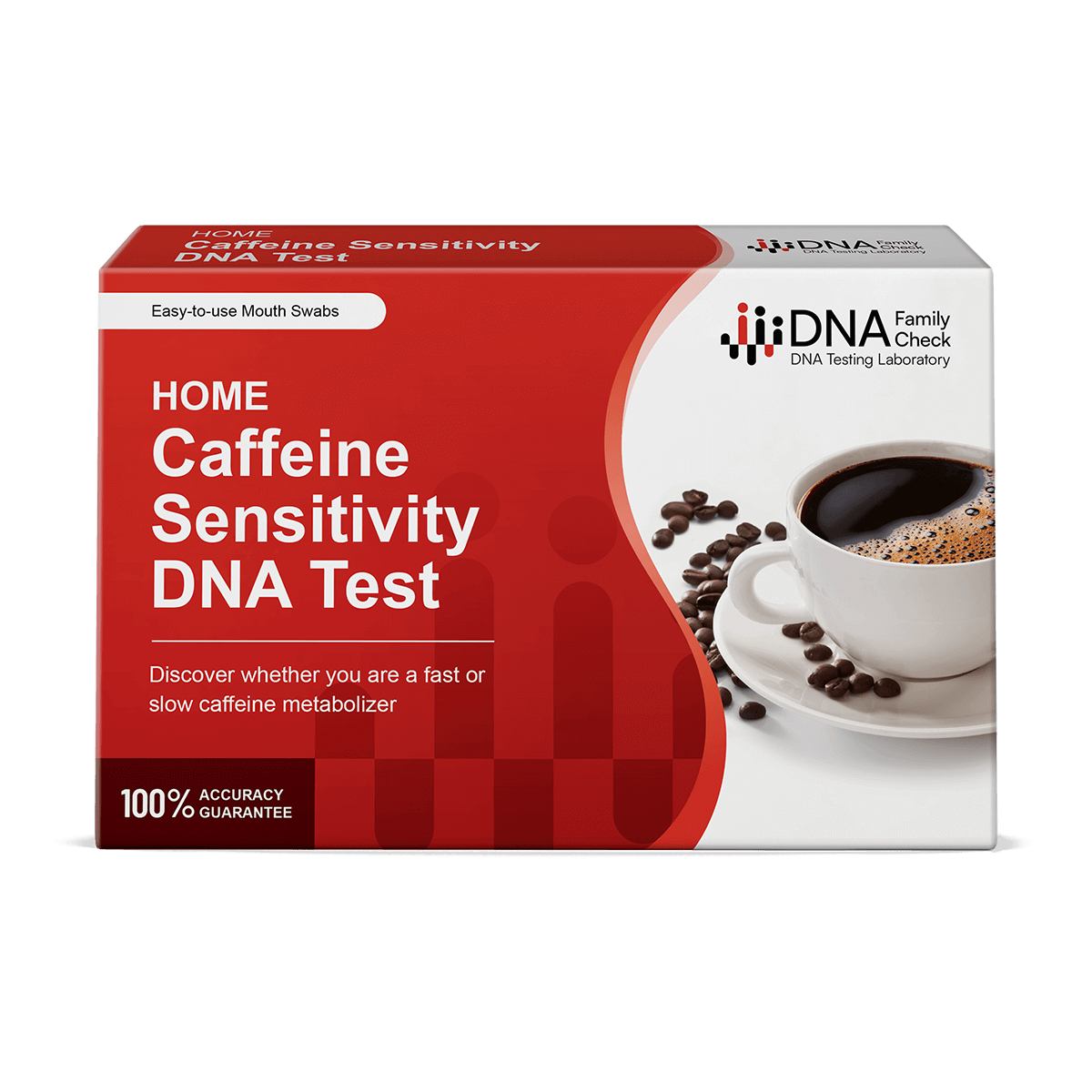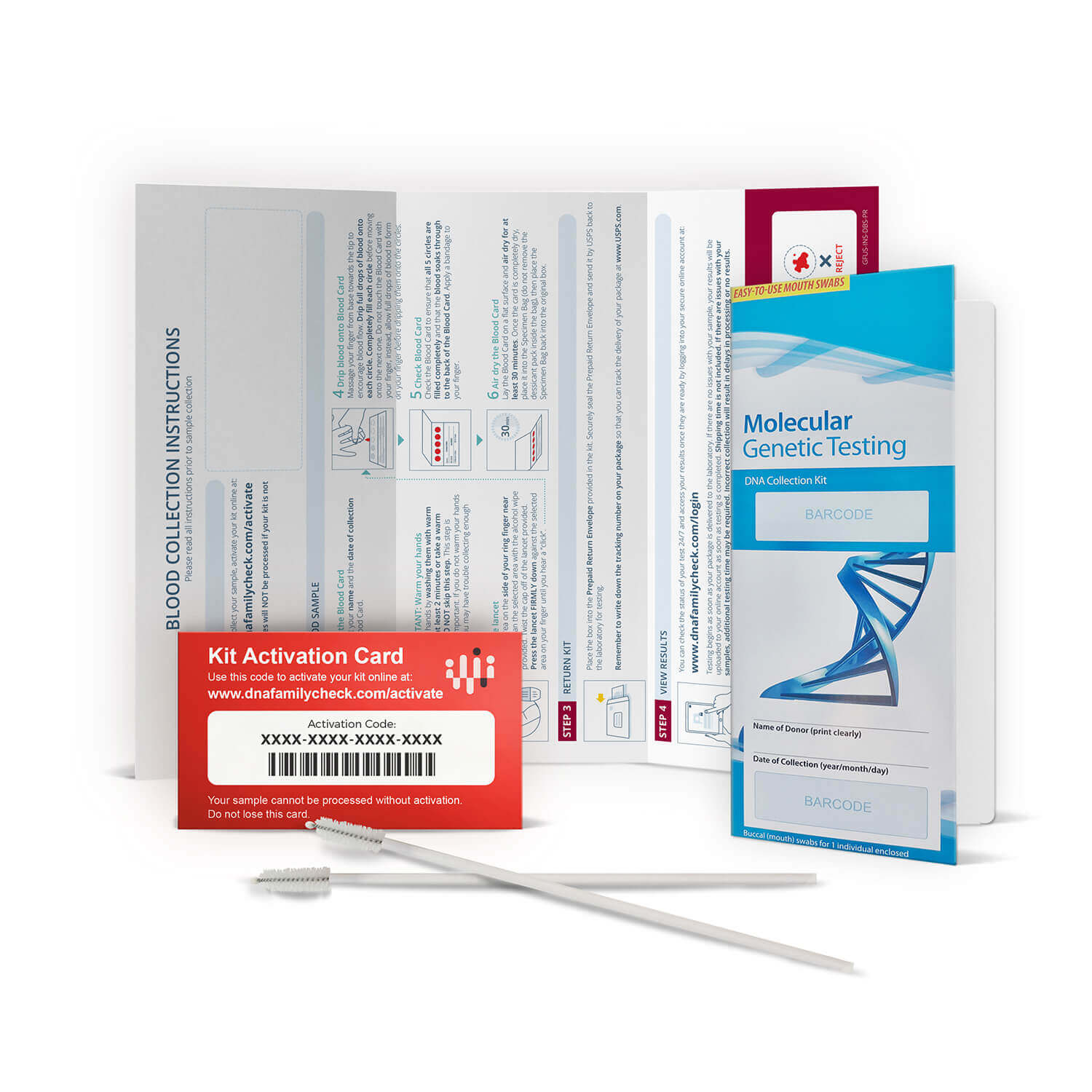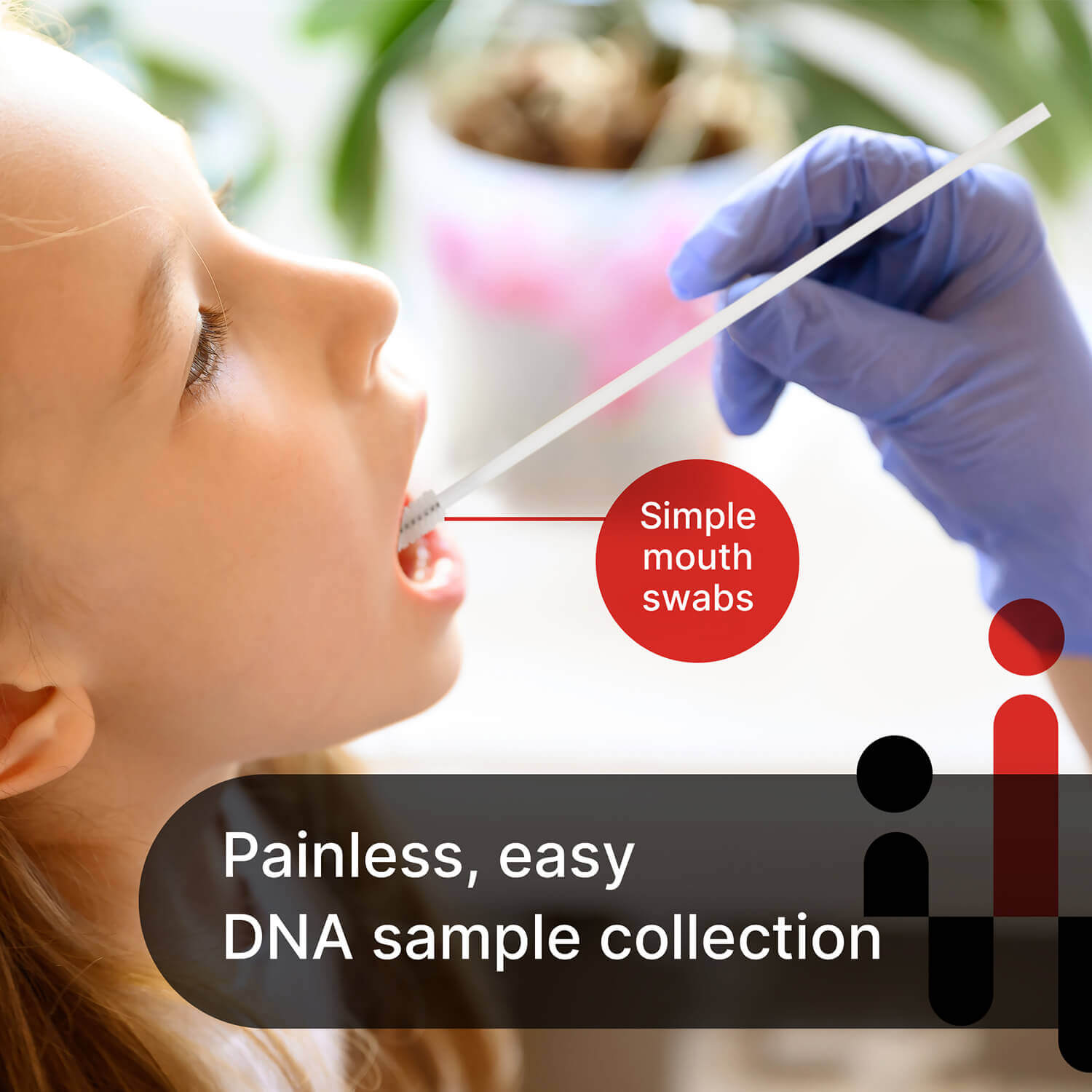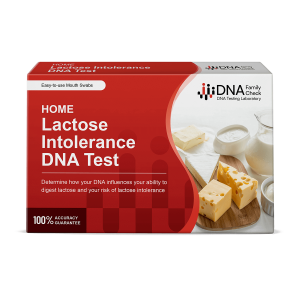



Caffeine Sensitivity DNA Test
$149.00
Are you a coffee lover or does caffeine leave you feeling jittery? This test analyzes your CYP1A2 gene to determine how your body processes caffeine. Discover if you’re a fast or slow metabolizer and personalize your caffeine intake for optimal energy and sleep.
- Learn if you are genetically predisposed to fast or slow caffeine metabolism
- Understand the effects of caffeine on your health, such as anxiety and sleep
- Simple at-home test with secure online results
Summary
Introduction to Caffeine Sensitivity
Caffeine is a widely consumed stimulant found in many everyday products, including coffee, tea, and energy drinks. While its stimulating effects are well-known, how individuals respond to caffeine can vary significantly. This variation in response is largely due to differences in how the body metabolizes caffeine, a process governed by genetic factors, particularly the CYP1A2 gene.
The CYP1A2 Gene and Caffeine Metabolism
The CYP1A2 gene encodes an enzyme that is primarily responsible for breaking down caffeine in the liver. The activity level of this enzyme directly influences how quickly or slowly caffeine is metabolized. Variants of the CYP1A2 gene determine whether an individual is a fast or slow metabolizer of caffeine:
Fast Metabolizers: Individuals with a variant of the CYP1A2 gene that leads to higher enzyme activity are classified as fast metabolizers. These individuals break down caffeine rapidly, leading to a shorter duration of its stimulating effects. As a result, they are less likely to experience side effects like jitteriness or sleep disturbances from moderate caffeine intake.
Slow Metabolizers: Those with a variant that results in lower enzyme activity are slow metabolizers. They process caffeine more slowly, causing it to remain in the system longer. This can heighten the risk of adverse effects, such as increased heart rate, anxiety, and insomnia, even with lower amounts of caffeine.
The Caffeine Sensitivity DNA Test
The Caffeine Sensitivity DNA Test analyzes specific variants of the CYP1A2 gene to determine your caffeine metabolism rate. By identifying whether you carry the fast or slow metabolizing variant, the test provides insight into how your body handles caffeine.
Fast Metabolizer Result: If your test results indicate that you are a fast metabolizer, you likely tolerate caffeine well and may not experience significant side effects from moderate consumption. The rapid breakdown of caffeine means its stimulating effects may be shorter-lived, which could influence how much and how often you consume caffeinated products.
Slow Metabolizer Result: If the test shows that you are a slow metabolizer, you may be more sensitive to the effects of caffeine. This can mean that even small amounts of caffeine can lead to prolonged stimulation, increasing the chances of experiencing jitteriness, anxiety, or trouble sleeping.
The test involves a simple cheek swab to collect a DNA sample, which is then analyzed to determine your specific CYP1A2 gene variant. Understanding your metabolism type can help you tailor your caffeine intake to better suit your body’s processing capabilities.
How it works

Collect

Ship

Results
Benefits
Convenience
No Hidden Fees
Fast & Accurate
Secure Online Access
About
Why DNA Family Check?
With over 20 years of experience and a proven track record, DNA Family Check is the trusted leader in relationship DNA testing. Our high-volume accredited laboratory has helped millions of families worldwide find answers and resolve questions about their relationships. As pioneers in the industry, we were one of the first to introduce the easy cheek swab method that's now the industry standard.
With our longstanding commitment to excellence and innovation, it's no wonder we're America's #1 choice for paternity answers. Our accredited laboratory is dedicated to providing accurate, reliable, and confidential results, ensuring that families receive the truth they need to move forward. With DNA Family Check, you can trust that you're in good hands.

